Gum Swelling Treatment After Root Canal
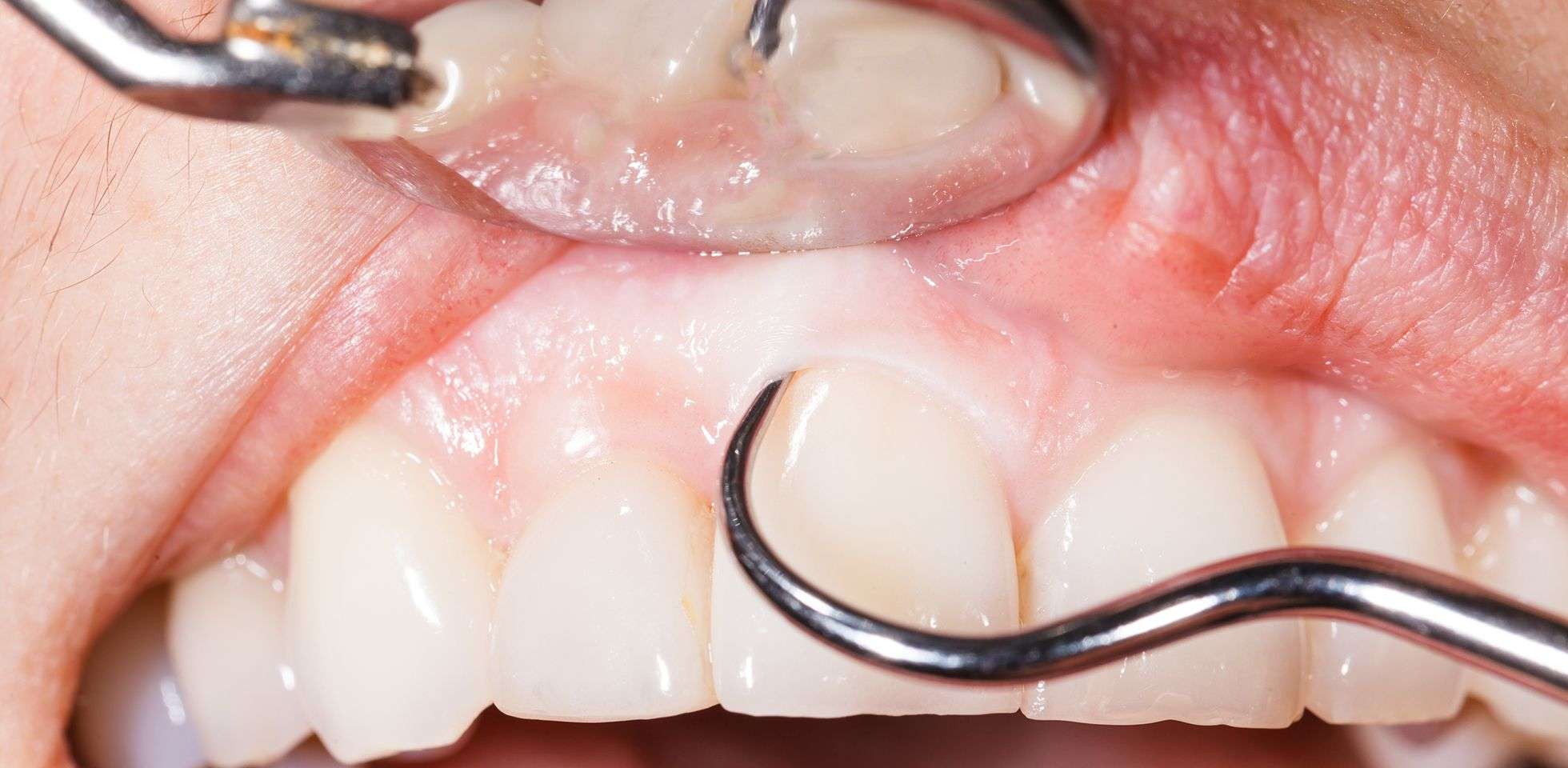
Swelling After Root Canal Treatment
It can be difficult to smile through gum pain and swelling. When your gums feel uncomfortable, you can receive the treatment you need from an endodontist or a dentist who specializes in root canals.
Gum swelling and pain can distract you from everyday activities. They often indicate problems in your mouth, and these issues can worsen if left untreated. Make an appointment with Dr. Lipner today if you are suffering from gum swelling.
- What Causes Gum Swelling And Pain After A Root Canal?
- Treatment For Gum Swelling
- Do I Need A Root Canal For Gum Swelling?
- How Much Pain Is Normal After A Root Canal?
- Is It Normal For Gums To Be Swollen After A Root Canal?
- How Long Do Gums Stay Swollen After A Root Canal?
- Cam Gums Get Infected After A Root Canal?
- How To Reduce Swelling After A Root Canal?
- Schedule Your Appointment For Gum Swelling In NYC
What Causes Gum Swelling and Pain After a Root Canal?
Many factors can cause swollen, painful gums. Food debris or dental floss stuck between your teeth can lead to swelling. Neglecting to floss could also create gum pain. Pregnancy or an abscessed tooth can also lead to swollen gums.
Gingivitis (gum disease) can arise from poor brushing and flossing habits. This condition can turn into periodontitis, which is more serious and can lead to lost teeth.
Your gums may also swell due to certain medications. Inform Dr. Lipner about any medicines you take.
Treatment for Gum Swelling
Treatment depends on the severity of your swelling and pain as well as the cause. You may need X-rays so your dentist can locate the source of the pain, such as an abscess or inflamed nerve. If you have an infection, you may require antibiotics. Scaling and root planing can address gingivitis and clean your mouth.
In some cases, you may need a root canal to address the underlying issues in your gums. In this case, you should choose an endodontist with experience dealing with painful gums.
Do I Need a Root Canal for Gum Swelling?
If you have developed serious tooth decay or an infection in your tooth, which has lead to swollen gums, you may need a root canal.
Infections can spread to the pulp of your teeth due to poor dental care and other factors. The infection may travel from the root of your tooth into the periodontal ligament. It may then enter the gums, causing painful swelling.
A root canal can alleviate this pain. Using the latest technology can help determine if you need a root canal. During the evaluation and treatment process, Dr. Lipner may:
- Use a diagnostic pulp tester to determine whether your pulp is infected or if something else may be causing your symptoms.
- Employ a high-powered dental microscope, which assists with maintaining the structure of the tooth by allowing Dr. Lipner to create smaller access points in your mouth.
- Finish with a higher-end rotary system, which shapes and cleans the root canal for treatment.
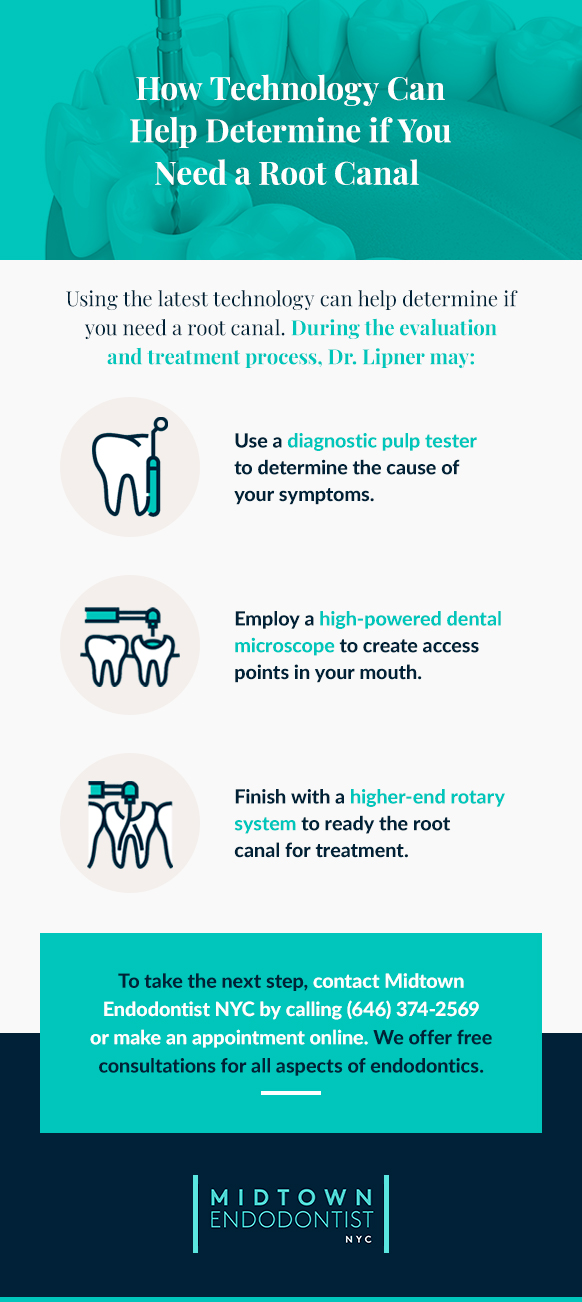
Once you have undergone a root canal, we recommend practicing good dental hygiene habits to keep your gums healthy and decrease the chance that the swelling will return.
How Much Pain Is Normal After a Root Canal?
Dr. Lipner uses the most advanced techniques for root canals. The modern approach and the use of local anesthetics mean root canals are less painful than many people think. Often, these procedures cause soreness similar to that from a filling. Still, the level of pain can vary depending on the patient.
It is normal to experience some pain after a root canal and some gum swelling. The area may feel sore and tender to the touch for a few days.
You can address some of the pain and swelling by taking any pain medication your dentist or endodontist has prescribed to you as directed. If you experience significant pain that goes unaffected by your prescription, or if your soreness lasts longer than a few days, contact Dr. Lipner for help.
FAQ About Swelling After Root Canal Treatment
Some of the most common questions our patients ask Dr. Lipner are:
Is It Normal for Gums to Be Swollen After a Root Canal?
Gum swelling after a root canal can occur and is quite common. The procedure is significant, and your body may swell while it works to heal itself. If your cheek swells, you can mitigate those effects by avoiding eating and drinking right after your root canal. We recommend waiting until the local anesthesia has worn off or until you can chew without biting the inside of your cheeks, which contributes to swelling.
How Long Do Gums Stay Swollen After a Root Canal?
Swollen gum after a root canal usually goes away on its own within 72 hours. However, the exact time it will take you to recover will depend on many factors, including your overall health.
Be alert for new swelling or swelling that persists. If you have swollen gums that linger after your root canal, contact your endodontist.
Can Gums Get Infected After a Root Canal?
Endodontists perform root canals to remove infections. These procedures save the tooth by taking the pulp out of the damaged or infected tooth after an injury, decay or other causes. Root canals cure infections for most patients.
Reinfection can happen in rare cases. You may notice pain, a hot feeling in your mouth, bad breath, swelling and other symptoms. If reinfection occurs, seek help from your endodontist immediately to receive the antibiotics you need to treat it.
An untreated root canal infection can spread to surrounding teeth, gums and other tissue in the area. Though the risk of reinfection is slight, these cases can become serious quickly.
If you notice anything amiss after your root canal, we urge you to contact Dr. Lipner at once. Our high standard for care extends beyond the initial procedure, and we will assess your condition as soon as possible.
How Do You Reduce Swelling After A Root Canal?
You may be able to reduce swelling after your root canal by applying an ice pack to the affected side of your face for 15 minutes at a time. Keep this up for 36 hours at most. Reach out to your endodontist if the swelling is significant and severe pain or other symptoms accompany it.
Schedule Your Appointment for Gum Swelling Treatment in New York
If you experience gum pain and swelling and other treatments have not helped, you may need a root canal. Contact Midtown Endodontist NYC by calling (347) 708-8795 or make an appointment online for a root canal. We offer free consultations for all aspects of endodontics.

 Our Providers
Our Providers
 Blog
Blog
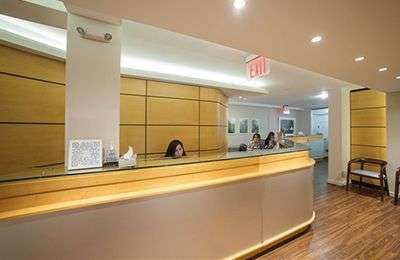 Contact us
Contact us
 Endodontics
Endodontics
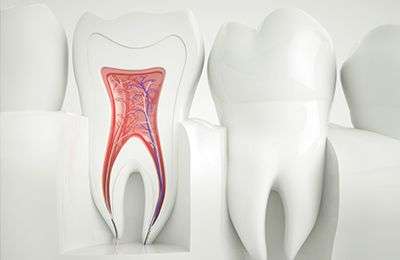 Root Canal Treatment
Root Canal Treatment
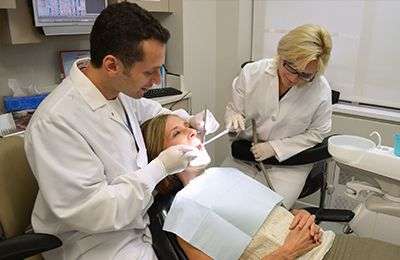 Emergency Root Canal
Emergency Root Canal
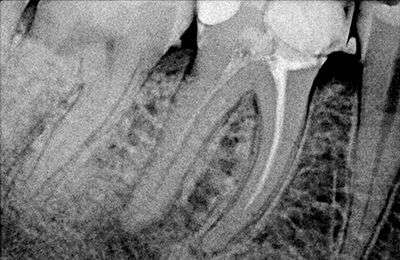 Root Canal Retreatment
Root Canal Retreatment
 Complimentary Teeth Whitening
Complimentary Teeth Whitening
 Teeth Whitening
Teeth Whitening

